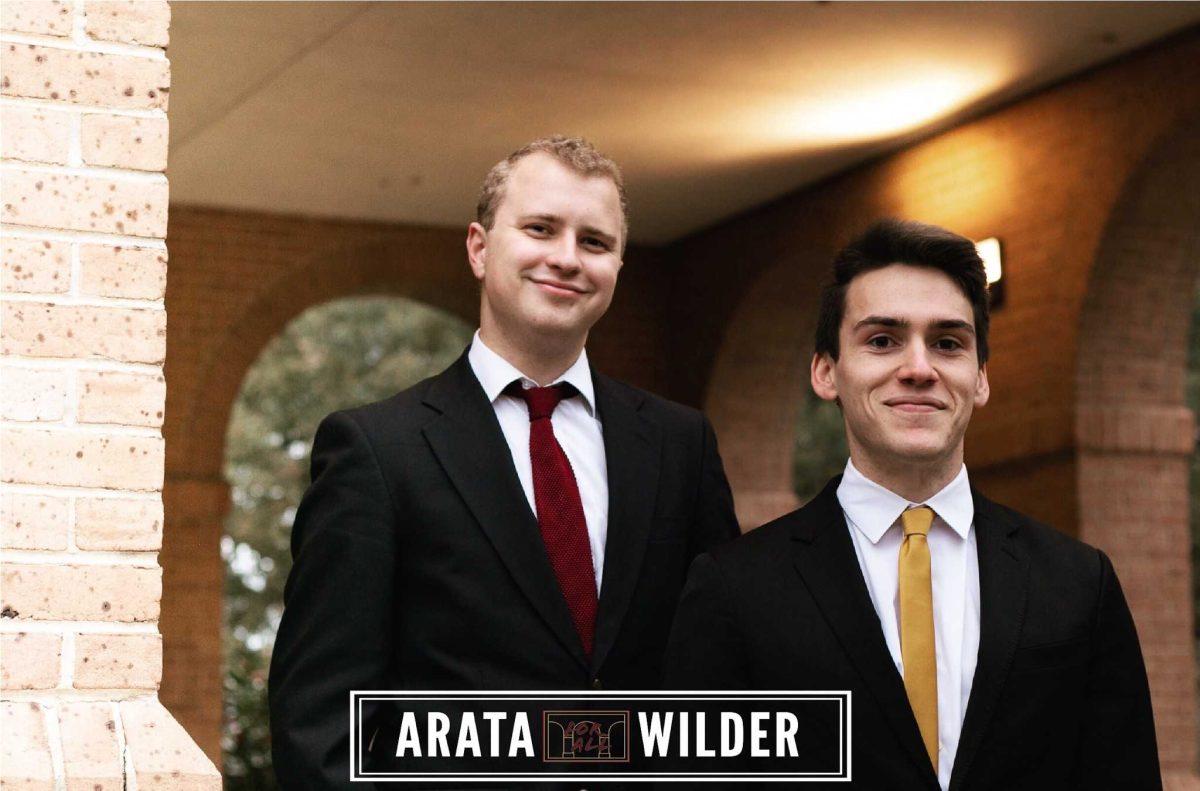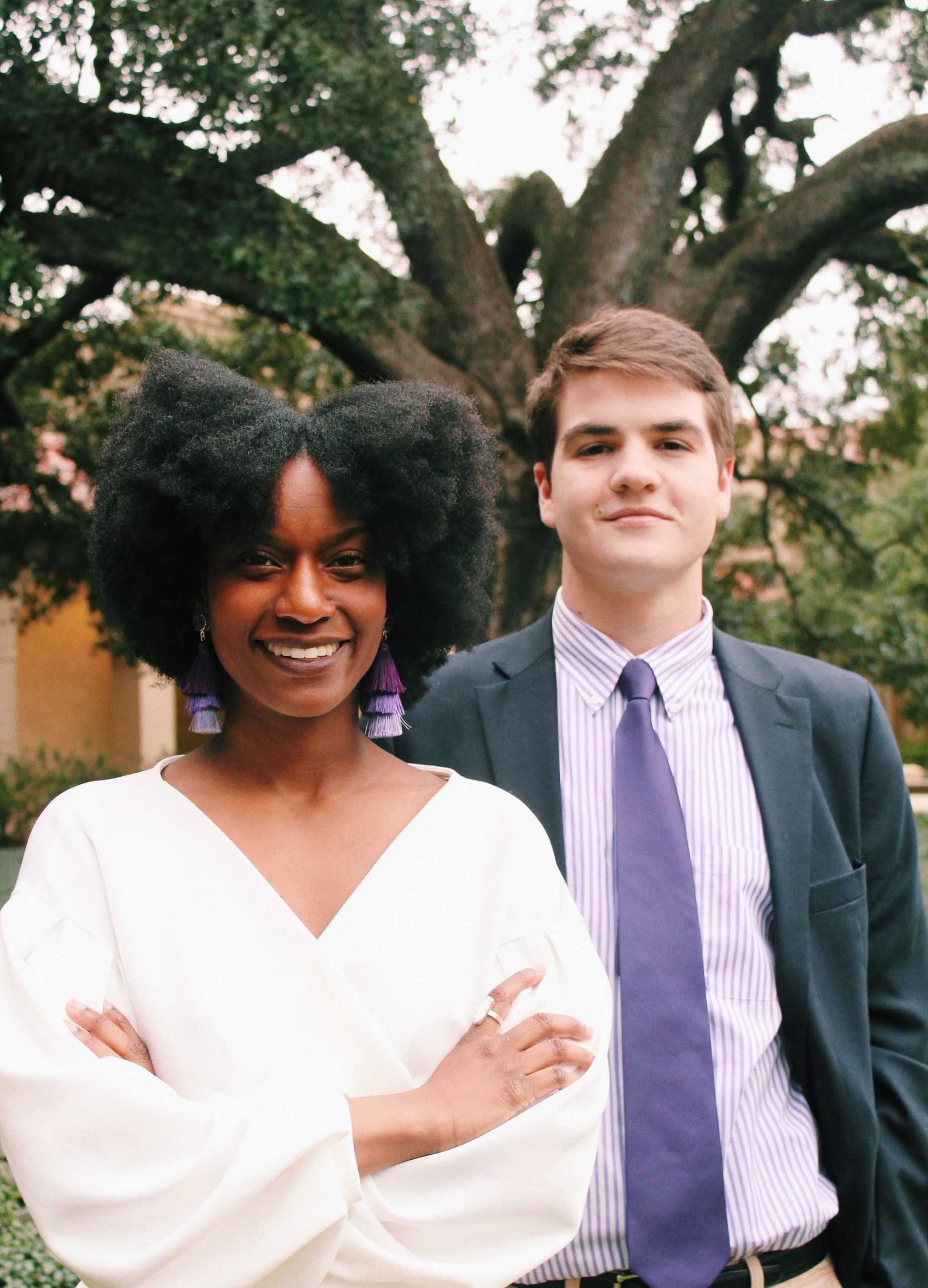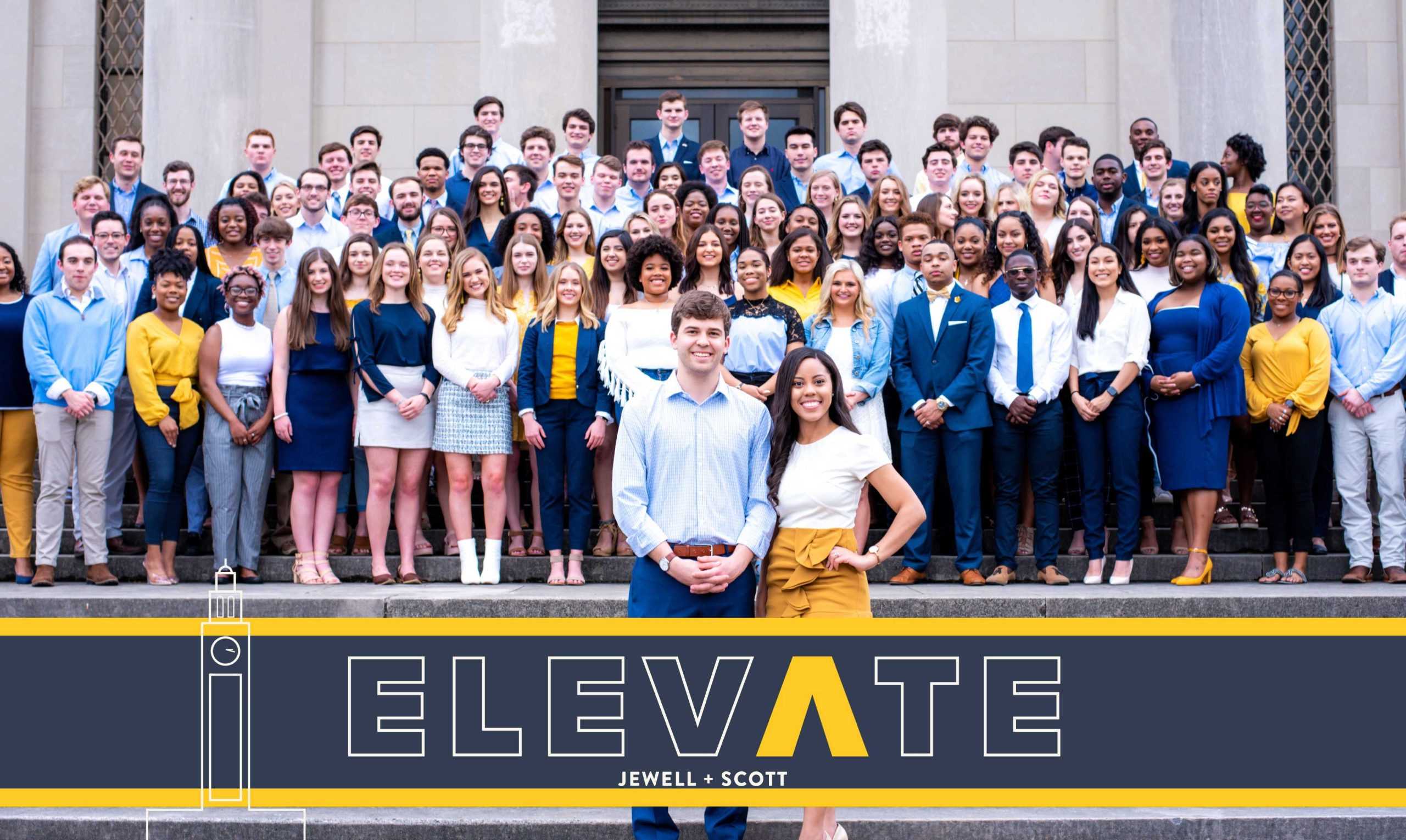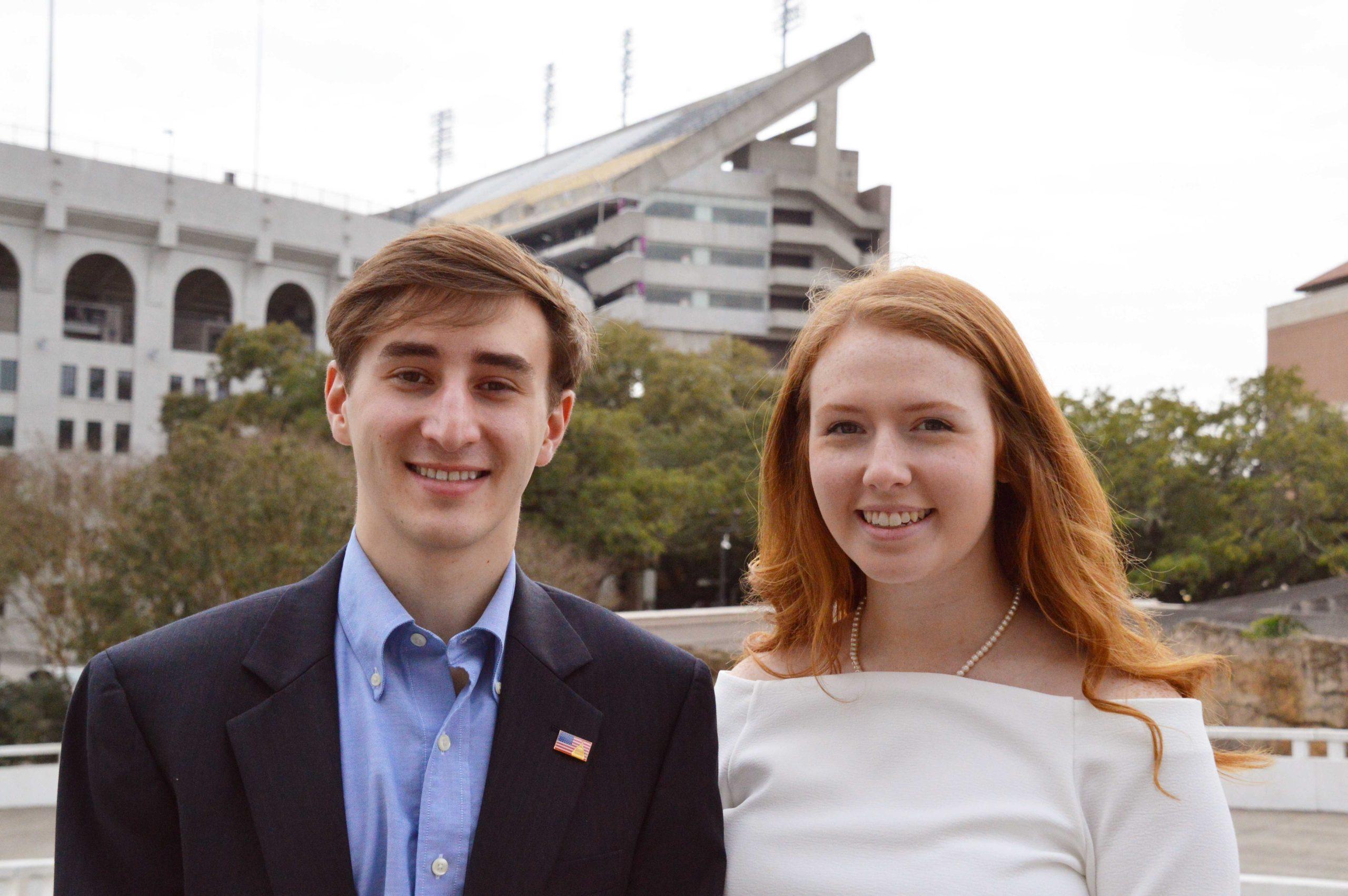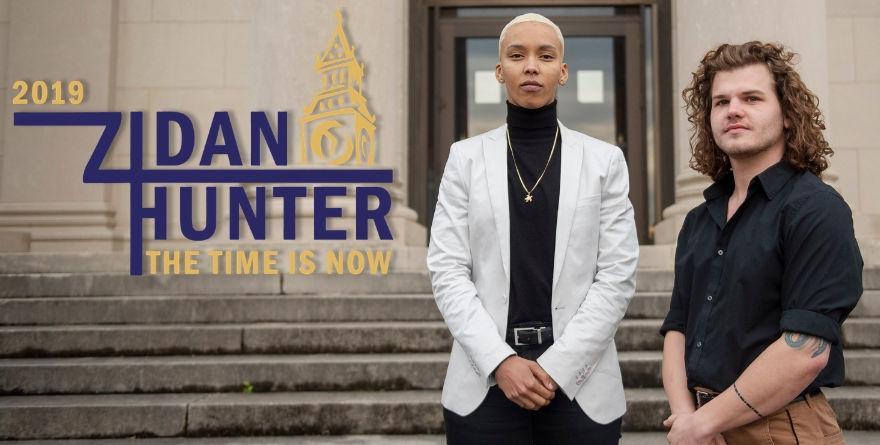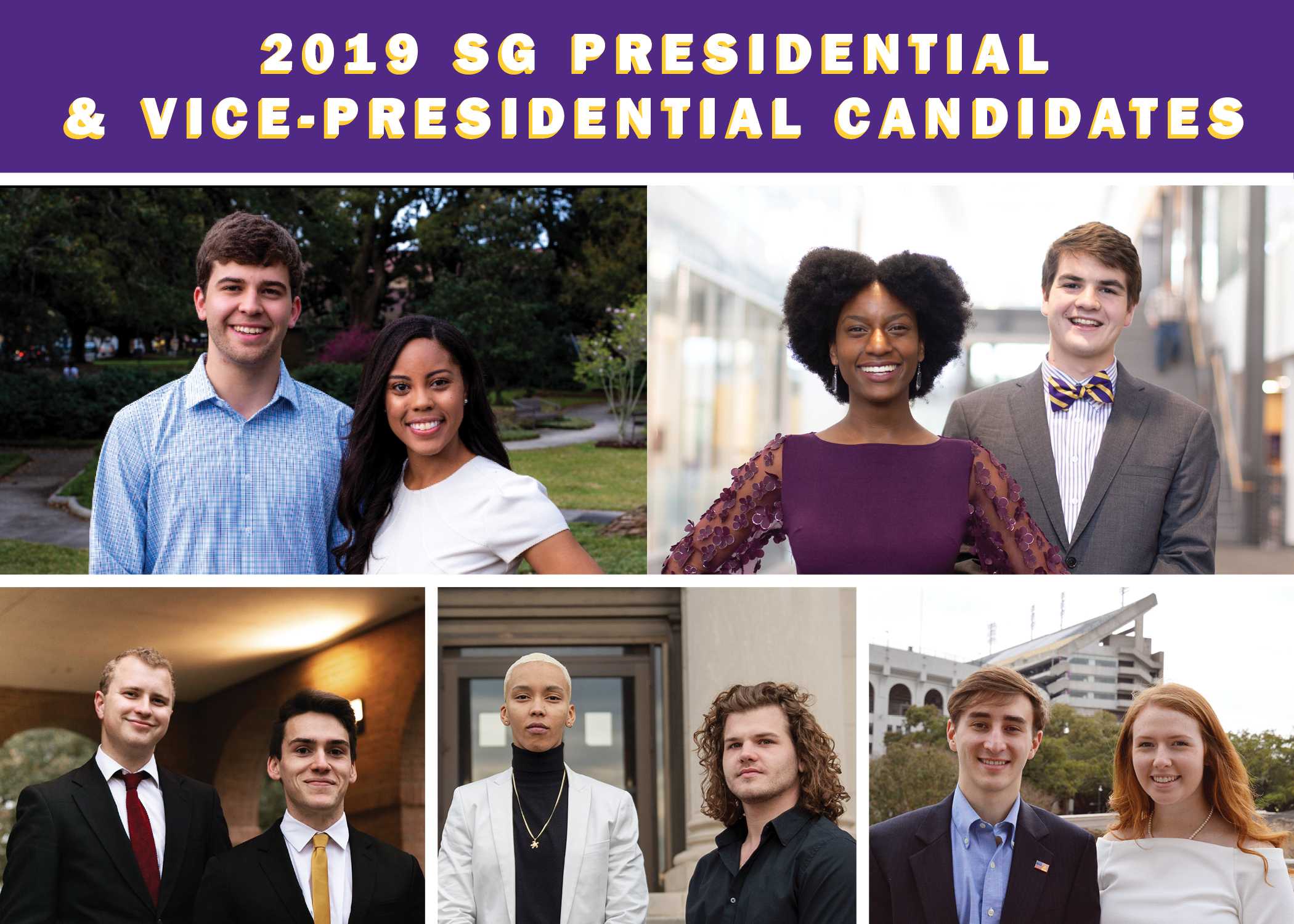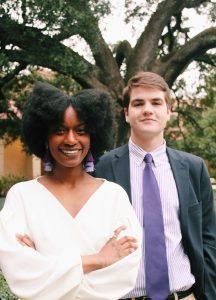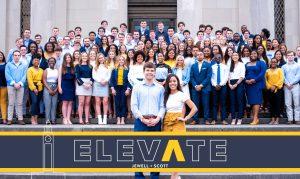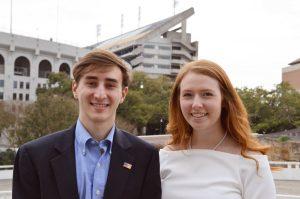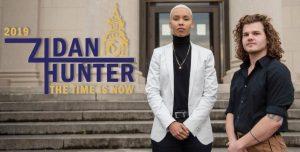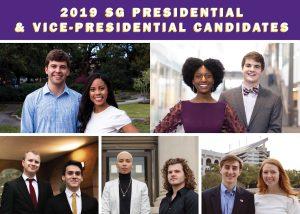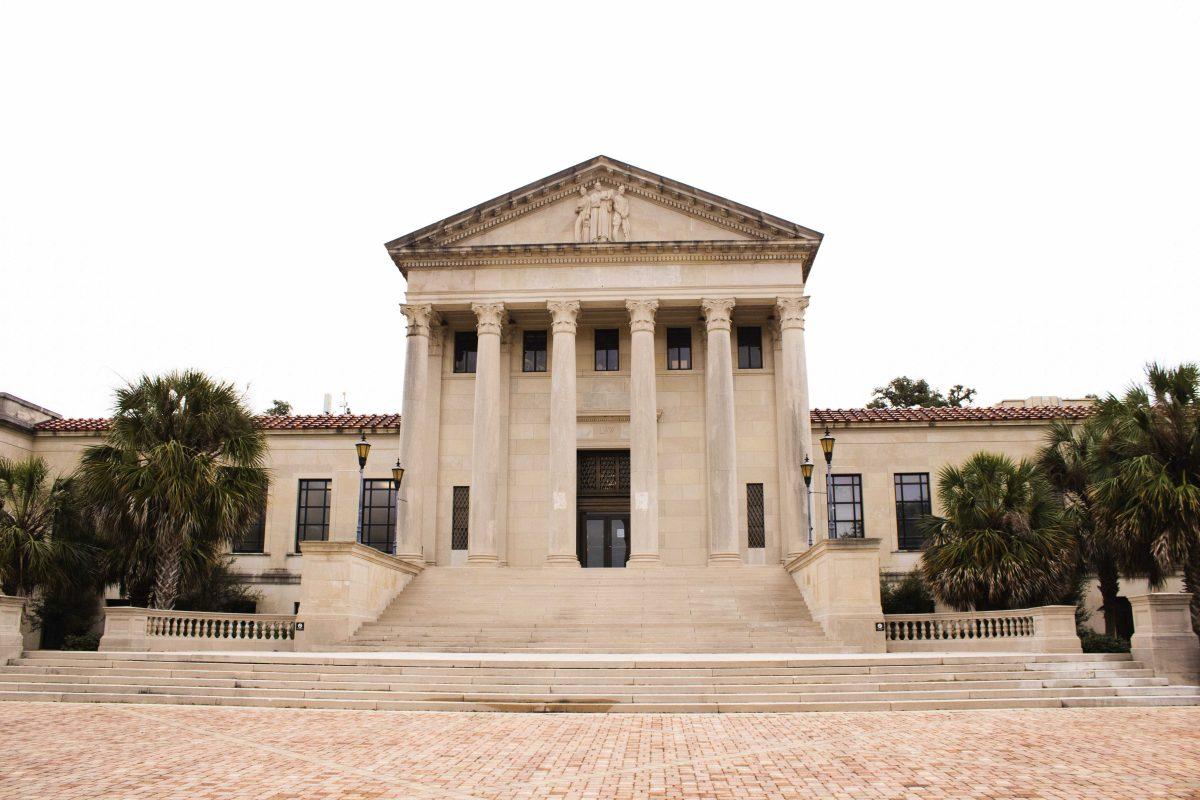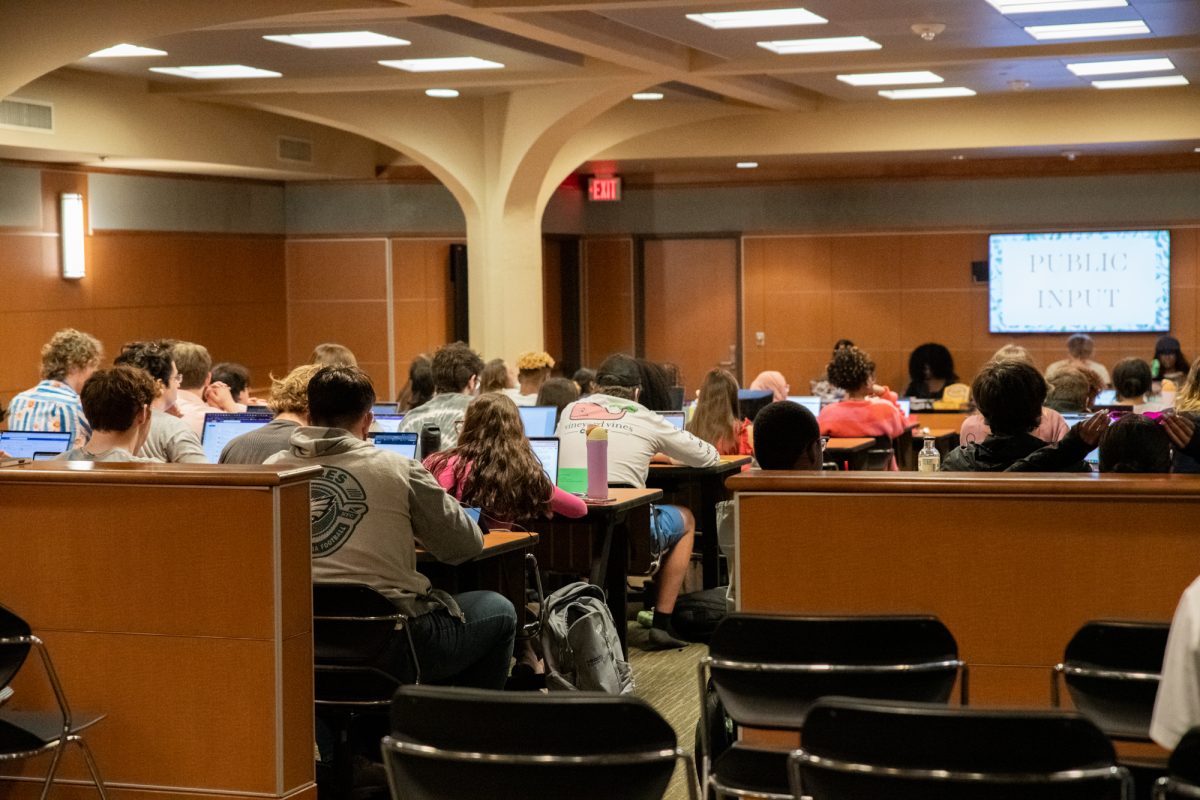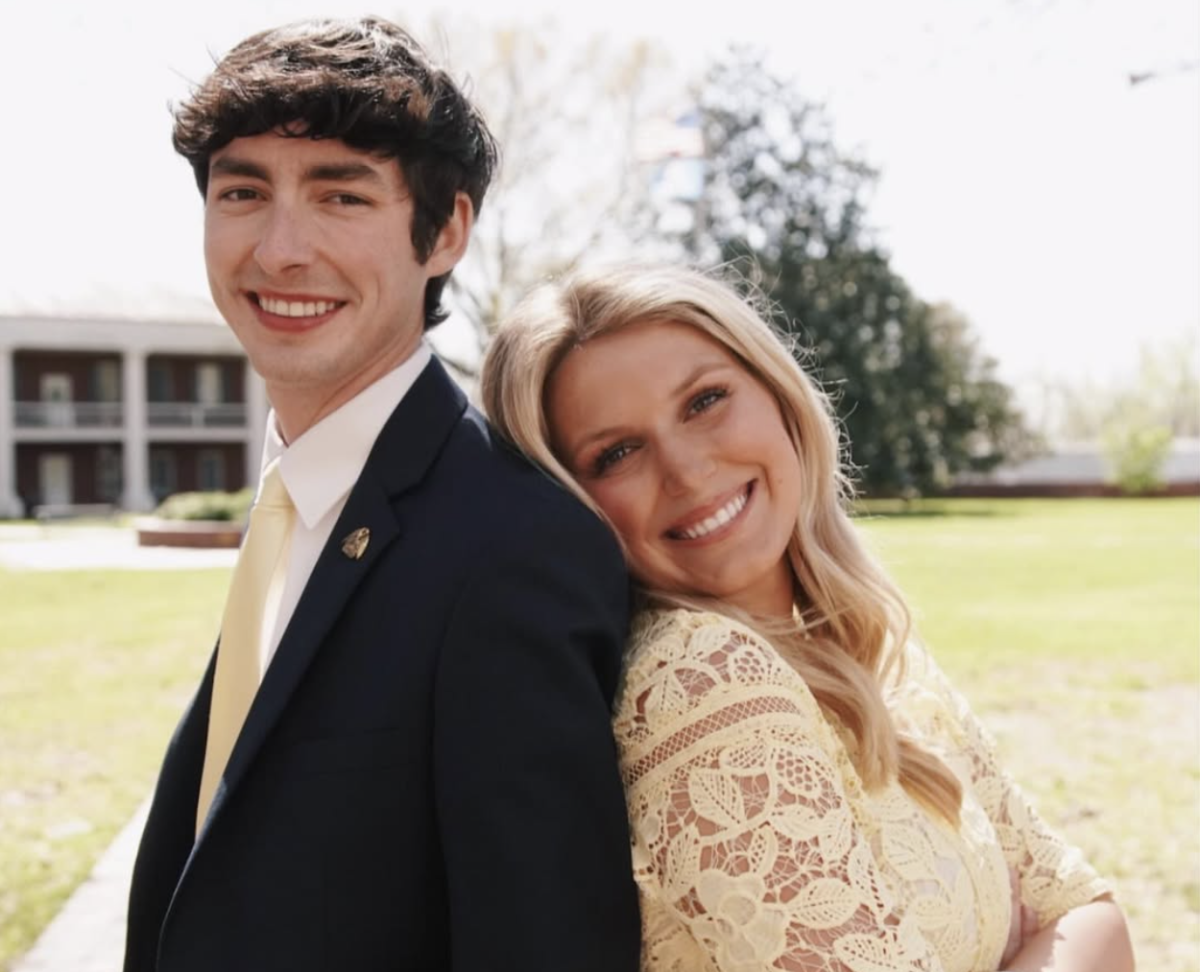For the last two years, LSU Student Government’s presidential elections have been uncontested. But this year, five presidential candidates and their vice presidents are eagerly vying for the top SG executive positions.
This election season also includes a diverse set of candidates including two openly queer candidates and three female-fronted tickets, two of which could be SG’s first black female president.
The candidates this season have overarching or similar goals and initiatives, with campus safety being a common priority among the tickets.
SG elections are on March 18, and students will vote for student body presidents, vice presidents and Honors College Council members through Tigerlink, a method initiated just this election season. Students will use Moodle to vote for other college council members and senators representing their senior colleges.
Here’s a breakdown of the candidates and their platforms, listed in the alphabetical order of presidential candidates’ last names:
“For All”
“For All” presidential candidate Andrew Arata and vice presidential candidate Russell Wilder plan to first create a diversity council comprising the presidents of all the University’s international student associations.
They have drafted several bills and initiatives that they are ready to materialize. Wilder has created 14 initiatives to help students with disabilities by making the University more ADA-compliant and helping those students have better overall experiences on campus.
Arata and Wilder plan to improve campus safety by implementing policies that are free and available to all students. In addition to teaching students how to remain safe, the duo said improving campus life is important and can be done by making sure residence halls are in good condition so students can live comfortably and happily.
“Legacy”
“Legacy” presidential candidate Brooklen Farley and vice presidential candidate Cory Koch want to leave a legacy at the University that future administrations can expand upon. The center of their campaign is community, as the term encompasses diversity, inclusivity, representation and advocacy.
If elected, Farley would be the first black female SG president.
The “See Commitment, Feel Change” candidates feel they have the duty to advocate for students outside of SG and Greek Life — two groups they said already include outspoken and involved students. However, they said they will still work to fulfill those groups’ needs and desires.
Campus safety is also one of Farley and Koch’s priorities, and they plan to improve it by growing SG’s relationship with LSUPD. They said they want officers to patrol areas near Middleton Library and the Quad more often, and they are in contact with LSU Staff Senate President Tammy Millican to try to expand the Tiger Transit staff at peak times.
They said they want to create the Tiger Action Group, which will be a group that advocates for students. One responsibility of the group is trying to get the University’s plus and minus grading system removed if students and faculty continue reporting the negative psychological effects it has on students. The group will also help get the grade exclusion policy extended to Physics 2000 so students who received a D or an F in the course can retake it and possibly improve their GPAs. Advocating for more diversity among the Student Health Center’s counselors will be another responsibility of the group.
Farley and Koch created a concept called the Council of High School Leaders, and they want to use SG to unite the next generation of leaders across racial and socioeconomic lines.
“Elevate”
“Elevate” presidential candidate William Jewell and vice presidential candidate Taylor Scott said they want to create a fun atmosphere within SG and throughout the University. Their initiatives are organized under five primary platforms.
The first is Enhancing the Tiger Experience, which includes initiatives to improve the day-to-day lives of students.
Another is Transportation Reform, and the candidates will work with administration to implement the Parking Lot Vacancy Status, an app or feature students can use to see which parking lots are full. This will be measured by putting sensors in parking lots.
Jewell and Scott also plan to prioritize campus safety, and they said they will work with LSUPD and administrators to ensure resources are being properly utilized.
The final two initiatives include a fight for funding and health and wellness, which the pair said they may explain in more detail closer to the election.
“All In”
“All In” presidential candidate Catherine McKinney and vice presidential candidate Nash Joyner’s campaign aims to leave the University in a better condition so future students can benefit.
The first of McKinney and Joyner’s three-initiative pillar is affordability. They said they are passionate about securing and expanding TOPS funding by lobbying to state legislators, which they have done successfully in the past. They also want to establish a scholarship portal students can access through their myLSU accounts. Students would fill out an application and be directed to verified scholarships they have at least a 70 percent chance of being awarded.
Their campus safety pillar includes increased ADA compliance, improved lighting on campus, better resources for LSUPD and faster transit times, which will be accomplished by putting Tiger Transit buses on more time-efficient routes.
McKinney and Joyner also want to increase student resources, and one such initiative is to bring back the Olinde Career Center’s online resume builder, which the center lost when it switched software. Students could format resumes online and receive help with adding content by going to the OCC. The pair said this is important to students’ professional development.
“The Time is Now”
“The Time is Now” presidential candidate Nalo Zidan and vice presidential candidate Ethan Hunter are aiming to change the University’s culture and empower all students. Both students openly identify as queer and have made diversity a priority of their platform.
One of their initiatives includes access to leadership, which is centered around students knowing who SG leaders are and feeling comfortable voicing their concerns to them.
Another facet of the platform is helping students hold professors accountable to ensure fair grading practices, acceptable classroom conduct, respect for students and syllabi that do not violate the University’s policies.
Zidan and Hunter plan to use their basic transparency platform so students know how funds are being used. They will create an annual open forum where administrators tell students how funds from fee bills are allocated and how students benefit from it.
Their considerate accommodations platform includes initiatives to expand mental health resources, get larger bathrooms in Lockett Hall, increase support for students with invisible disabilities and broaden the accommodations offered by the Office of Disability Services.
Zidan and Hunter plan to increase campus safety by improving lighting and adding numerous emergency blue phones that immediately dial emergency numbers when they are picked up.
Full candidate profiles and other SG election coverage can be found here.
A look at the five LSU Student Government presidential campaigns, platforms
March 13, 2019
Andrew Arata and Russell Wilder prioritized outcomes of their initiatives in their campaign, emphasizing that the role of SG president is to serve the students, not make the University look good.
More to Discover



